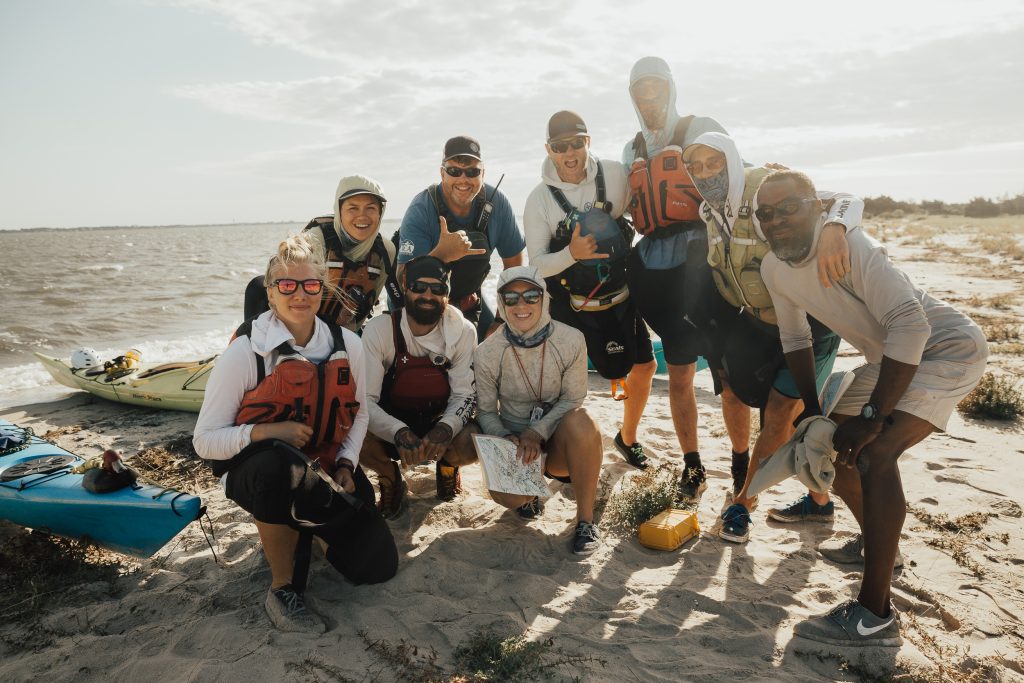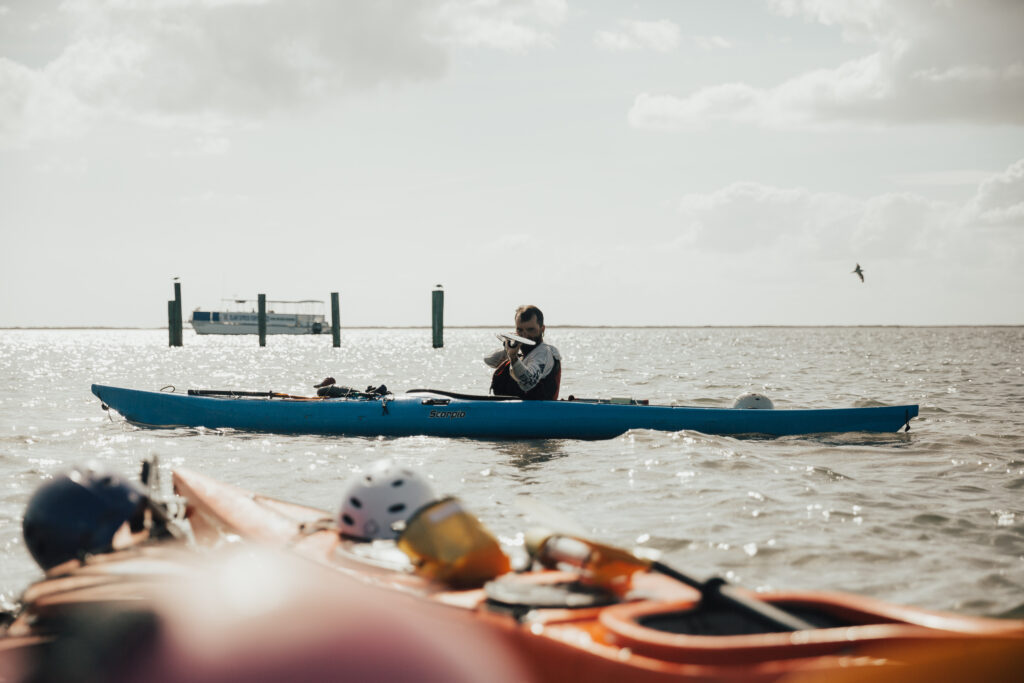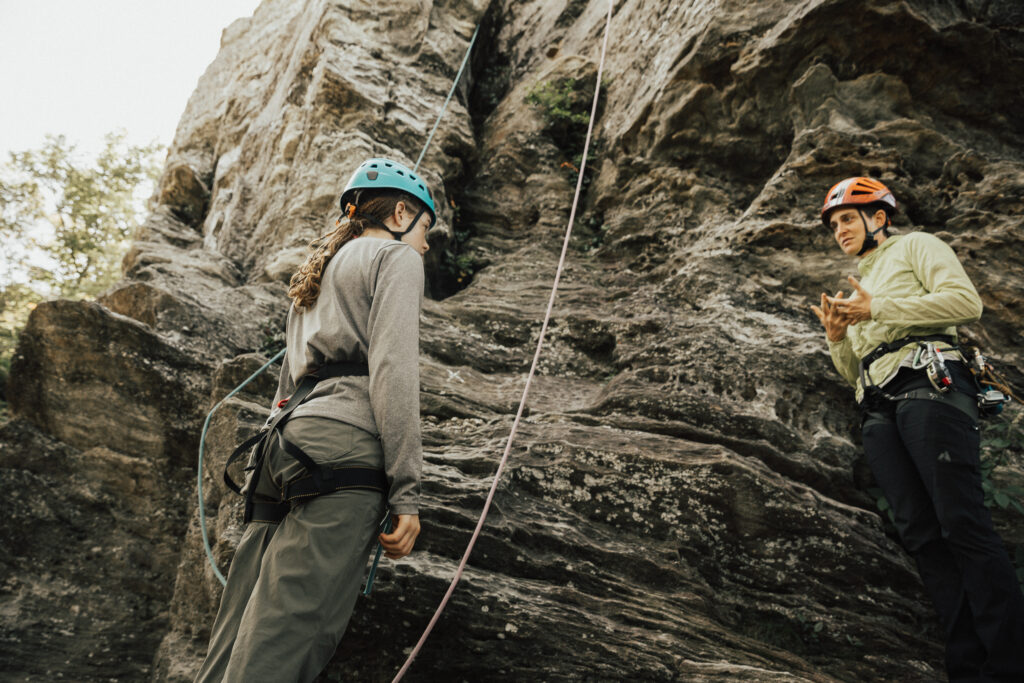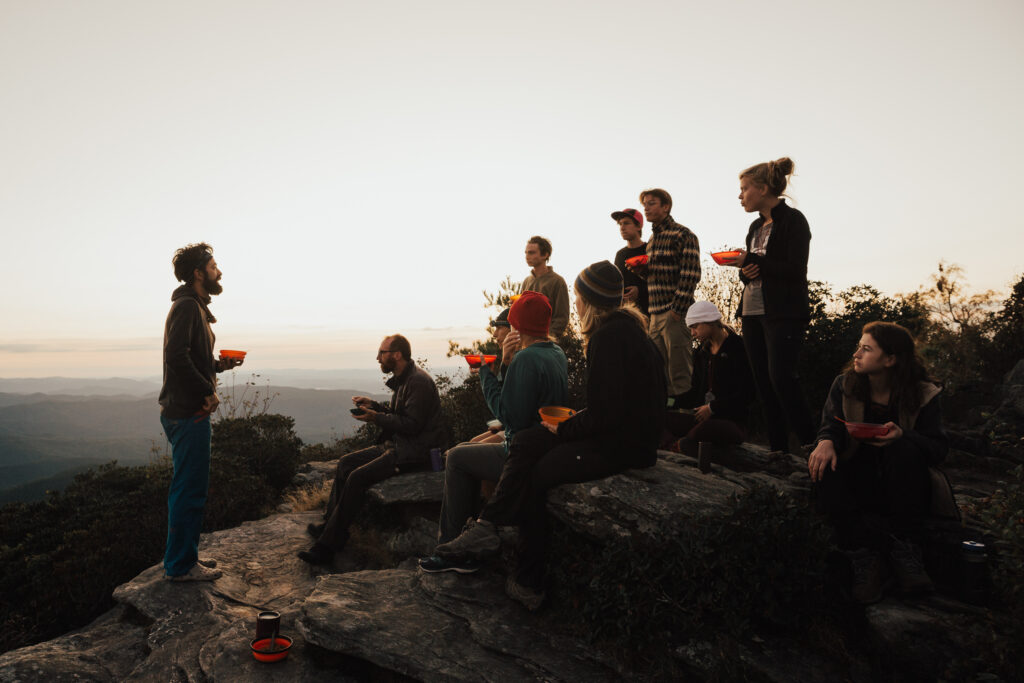Outdoor leadership is defined by technical skills, but it’s also so much more. Discover the skills that make up true outdoor leadership.
At Outward Bound, we’re passionate about sharing the outdoors with every student, everywhere. This passion is what first attracted me to become an Instructor. Before joining Outward Bound as an Instructor, I had just finished college and I was ready to step outside of my comfort zone. I wanted to learn something new and exciting. I remember looking at pictures of expeditions and in my mind, I had a picture of what an outdoor leader looked like. Strong. All-season beanie wearer. Mountain lion fighter. High sock owner. Before my internship started, I grabbed every book I could get my hands on, whether it was about surviving in the backcountry, setting up the perfect campsite or how to win a fight with a bear. I wanted to be prepared and ready to lead expeditions on my own.
Don’t get me wrong, there is no shortage of technical skills to learn, from whitewater rescue techniques to reading a topo map. However, I quickly realized that mastering technical skills was only a small part of being an Instructor and an outdoor leader. In fact, during my training, we spent more hours of the day fostering interpersonal communication than we did whittling wood. More time discussing behavioral science than learning how to read maps and navigation. And even more time learning how to grow through conflict resolution than we did portaging canoes.

Photo by Instructor Rachel Veale.
During my time as an Instructor, I met the most influential individuals that strived to be life-long learners. They were people who never stopped asking questions or working to improve their lives inside and out. I found that being an outdoor leader was a unique balance between the disciplines of leadership theory and technical skills. Soft skills and hard skills.
Below are six skills that formed my leadership foundation as an Outdoor Educator and ones that I continue to leverage in my everyday life.
1. Communication Skills
We constantly communicate with verbal and non-verbal communication such as hand gestures, body language and words. When you’re on an outdoor excursion, communication needs to be clear in order to ensure that everyone is in tune and in line with the plan. Outdoor leaders don’t expect students to know right away what to do. Instead, they set time in the morning to share the daily plan, expectations and personal or group goals. They help with excitement or apprehension around the upcoming adventure and spend the day demonstrating what needs to be done.

Photos by Instructor Rachel Veale.
2. Leave No Trace: Environmental Stewardship
At Outward Bound, we practice and teach Leave No Trace (LNT) principles. LNT guidelines help individuals plan, prepare and adventure more consciously while encouraging a mindset of environmental stewardship. Within each expedition, we embark on nature-centric adventures while considering the impact of our actions on the environment. Outdoor leadership looks like modeling and empowering others with the knowledge and understanding to turn these practices into action.
3. Competence
Being competent in the skillsets you choose is a lot like having confidence. Leaders try their hardest and give their best. At Outward Bound, each student is given opportunity after opportunity to practice and improve on all different types of skills. When you are competent in a skill, people around you will feel at ease, they feel safe knowing you have taken the time to become an expert.

Photo by Rachel Veale.
4. Safety and Risk Management
With any plan, there is never a complete guarantee that things will go as you wanted. Some situations place you and others outside of your comfort zone, like days that can be exhausting and paths that may have difficult obstacles. And while those situations may not be avoidable, as a leader, it is your job to manage the perceived and present risks and reduce the potential for injury and illness.
Leading through hard moments requires a strong sense of perseverance matched with a confidence in your training and understanding. A strong outdoor leader is someone who can utilize their knowledge in technical skills, leadership skills and wilderness medicine to read their group’s physical, mental and emotional capacity in order to create an informed plan and help their crew reach their goal.
5. Influence
When you think of leaders in your life, you’re probably thinking of those that have positively influenced or impacted you. What does it take to influence a person or a group? Generally, influence comes from building rapport and getting to know individuals. Building trust is crucial when you want others to have confidence in your ability to lead. Outdoor leaders prioritize building trust and growing rapport with their students, not because they have to, but because they want to.

Photo by Rachel Veale.
6. Goal Setting
What is the goal of the day? Is it to wander or is it to get up and down a mountain? Where do you need to go in order to be closer your finish line? Closer to a hot meal and shower? Large or small, outdoor leaders are asked to set daily goals that are realistic, attainable and specific that will help them and their crew focus on the steps needed to accomplish their goals and get to camp.
These leadership skills are what make expeditions come together and the best part about it is that these skills aren’t just for Instructors. At Outward Bound, when you take an expedition, you don’t leave with just a bucket of outdoor skills. Sure, you may know how to scale a mountain efficiently, but even more so, you’ll leave with a foundation of hard and soft skills developed and practiced that can be transferred to the rest of your life. You will leave as an outdoor leader who has gained experience through determination, support and practice.
Discover Upcoming Winter and Spring Gap Year and Outdoor Educator Expeditions.
About the Author
Hanna McCarthy is a former Outward Bound Instructor and now lives and works in Philly with her husband, Nick, and two dogs, Jelly and Waffle. She finds time each year to surf in new places and enjoys spending time with friends and family. Hanna now splits her career between a corporate job and teaching yoga, finding balance in her life.




